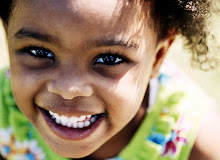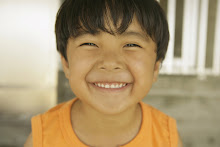
This is the next post in a series based on the Early Childhood Indicators of Progress:
We’ll start of the main content of this series by looking at the first of the six domains of the indicators of progress: Social and Emotional Development.
The social and emotional development domain relates to how children feel about themselves and their interactions with peers and adults. This domain has three components: emotional development, self concept and social competence and relationships.
Central to this domain are the skills necessary for children to make friends, solve conflicts and function well in groups. Many educators feel that this domain is especially important in ensuring that kids will be ready to learn when they start kindergarten.
Emotional Development
This component centers around children’s ability to understand, describe, express and appropriately regulate their own emotions as well as respond to others’ emotions. A child aged three to four should be able to:
- Demonstrate increasing competency in recognizing and describing own emotions
- Demonstrate increasing use of words instead of actions to express emotions
- Begin to understand and respond to others’ emotions
- Begin to show self-regulation to handle emotions appropriately
- Explore a wide range of emotions in different ways (eg through play, art, music, dance)
- Respond to praise, limits and correction.
Families can support children in their emotional development by taking time to listen to their children and responding with warmth and assurance. Helping children to identify and understand their emotions and encouraging children to talk about their feelings will lead to strong emotional development as will modeling constructive conflict resolution and coping strategies.
Teachers and caregivers facilitate strong emotional development by establishing warm, caring and engaged relationships with each child. Teachers and caregivers create can provide many opportunities for strong emotional development including schedules and routines that promote self-control, opportunities for children to practice stress-reduction strategies, and opportunities for children to discuss and understand their feelings and the feelings of others..
Self-Concept
To demonstrate development in this component, a child will show independence and develop awareness of her or his own characteristics, likes and dislikes, and begin to understand own cultural identity and gender. A preschool should be able to:
- Begin to experiment with own potential and show confidence in own abilities
- Demonstrate increasing self-direction and independence
- Develop awareness of self as having certain abilities, characteristics and preferences
- Begin to develop awareness, knowledge and acceptance of own gender and cultural identity
Families can help build self-concept by recognizing children’s interests and make suggestions for activities to support their interests. Families can encourage children to try new things by exploring and learning together and support children’s awareness of and pride in their cultural heritage.
Teachers and caregivers can allow children to experiment with their growing independence and provide opportunities for children to be exposed to a wide variety of experiences. Teachers can demonstrate respect for individuals and groups of people as well as support children’s developing understanding of their gender and cultural identity and provide opportunities for children to learn about cultures – their own and others.
Social Competence and Relationships
Children developing normally in this component will interact easily with peers and adults in group settings. A preschooler should be able to:
- Interact easily with one or more children
- Interact easily with familiar adults
- Approach others with expectations of positive interactions
- Begin to participate successfully as a member of a group
- Use play to explore, practice and understand social roles and relationships
- Begin to understand others’ rights and privileges
- Sustain interaction by cooperating, helping, sharing and expressing interest
- Seek adult help when needed for emotional support, physical assistance, social interaction and approval
- Use words and other constructive strategies to resolve conflicts
Families can build social competence and strong relationships by helping children to practice listening and talking, to understand and appreciate similarities and differences among people, and to develop an understanding of the feelings, actions, and ideas of others.
Teachers and caregivers can support social competence by providing opportunities for children to practice listening and talking to others, and helping children to develop an understanding of the feelings, actions, and ideas of others. Teachers can also plan activities to build a sense of belonging and community with children, encourage children’s understanding of others’ rights and privileges, and provide information, opportunities and support to help children develop constructive conflict management strategies.
For all thee components, Community members and policy makers support this domain by recognizing the importance of social and emotional development for early learning and creating opportunities for families that encourage positive development. Community members and policy makers can advocate for high quality, developmentally and culturally appropriate early learning opportunities available and affordable for all families and ensure linkages between early learning and other programs that serve families such as health, mental health and social services.This is a quick summary of the social and emotional development domain. For more detailed information, see the Early Childhood Indicators of Progress. Also, Ready 4 K has produced a paper describing the importance of social and emotional development for school readiness.
Check back next week as we explore Approaches to Learning.






No comments:
Post a Comment